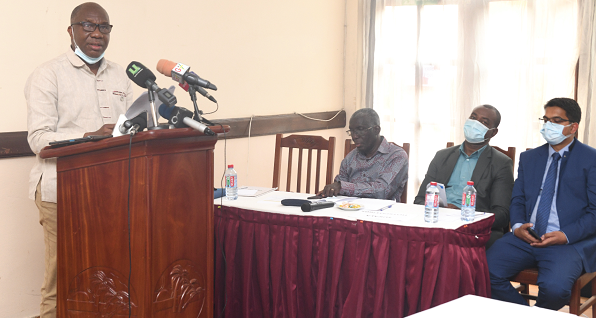
Stakeholders deliberate on management of Volta River Basin
Stakeholders in the management of the Volta River Basin from six trans-boundary countries are in Accra to explore best solutions to flood, drought and climate change early warning adaptation.
The basin is one of the largest river systems in Africa, covering an area of approximately 400,000 kilometres square and spreads over six riparian West African countries – Ghana, Benin, Burkina Faso, Cote d'Ivoire, Mali and Togo.
Advertisement
The three-day meeting, which opened in Accra yesterday, on the theme: “Integrating flood and drought management and early warning for climate change adaptation in the Volta Basin”, is expected to build the capacity of participants to develop bankable projects to facilitate the integration of flood, drought and early climate change warning adaptation in the management of the basin.
The meeting is jointly organised by the Ministry of Sanitation and Water Resources, the Volta Basin Authority and the Water Resources Commission (WRC), in collaboration with other development partners.
Innovative solutions
In a speech read on her behalf, the Minister of Sanitation and Water Resources, Ms Cecilia Abena Dapaah, said although efforts had been made to manage the myriad of climate issues within the basin, there was still the need to apply innovative and ecologically sound nature-based solutions in the planning of programmes and projects at the local, national and trans-boundary levels, especially in the context of disaster risks and the recurrence of floods and droughts.
“It is, therefore, reassuring that this workshop has come at an opportune time to build the capacity of stakeholders in nature-based solutions, with the view to developing bankable projects in the country and the entire basin,” she said.
The Executive Secretary of the WRC, Mr Ben Ampomah, said the use of natural processes to improve the management of water would contribute to resolve challenges in the sector.
“Nature-based solutions work with nature and provide essential means for us to move beyond business as usual to improve water resource management. But we need knowledge and capacity at all levels,” he said.
He also said it had become critical for countries sharing the basin to take stock of their socio-economic practices with respect to their water bodies and the vital role they played in their economies.
“We are in times when we need to take pragmatic actions and be more responsible towards the use, protection and conservation of our water and other natural resources,” Mr Ampomah added.
Resource management
A representative of the international union for the conservation of nature, a development partner in the sector, Mr Jacques Somda, said with improved knowledge and the development of new tools for the sustainable management of natural resources, stakeholders would be able to ensure economic development without destroying nature.
Writer’s email: [email protected]



